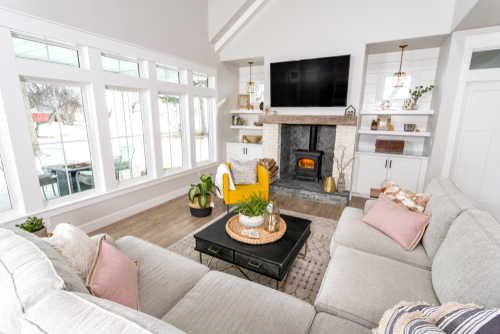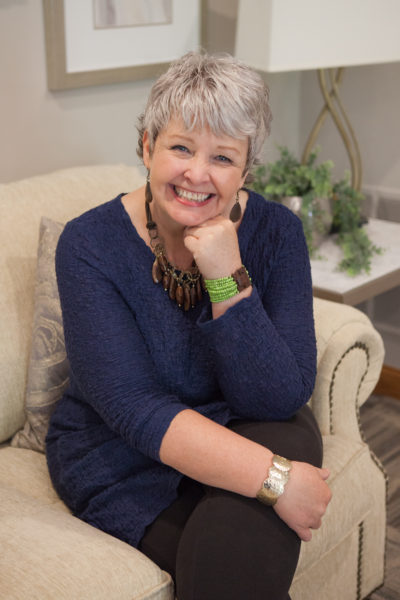When I begin to work with you as a design client one of the first questions I’ll ask you is, “What is your design style?”
I’ll then show you a variety of pictures from modern farmhouse kitchens, sleek contemporary living rooms to cottage style bathrooms hoping to discern what your design style might be. Don’t worry.. you don’t have to know what the name of your style is, you just need to look at the photos and tell me which ones you like best.
A few of the most common design styles are: Traditional, Transitional, Contemporary, Modern (Mid-Century), Rustic, Modern Farmhouse, Industrial, Shabby Chic, Eclectic, French Country, Hollywood Glam and Bohemian.
This is helpful for me to get an overall look you’re going for in your home.
But there is something even more important than your design style and that’s your DESIGN PERSONALITY.
What’s the Difference Between Design Style and Design Personality?
A design style is generally reflective of what’s currently popular in our culture or in our area of the country/world. Here in the mid-west Modern Farmhouse is popular.

Your design personality reflects how you are wired to live, the personality traits that make you special. Your personality traits are important to take into consideration when designing your space because it is going to be the little things that will make you feel at peace with your space. For example, if you have the Popular personality type you enjoy the element of fun. So to reflect that in your design I might suggest a quirky wall paper that makes you smile.
Discovering your personality type is vital to creating a space that fits the way you live and what specific things will make your home a perfect place for you. It’s also important to know your family’s personality traits as well so everyone is happy with the space when it’s finished. Blending styles can be tricky when you have different personality types and that’s where a designer can really help to make sure everyone relates to at least one element of design in the room.
In the next few blogs I’m going to go through these types and help you determine what your primary personality type is. From there I will combine each personality type with key design elements and give you a list of specific things you will want in your home. Things that fit your design personality!
So here are the four personality types that we are going to study. They are Popular, Peaceful, Powerful, Perfect.
Let’s start with the Popular Personality type, since we already mentioned it above.
The Popular Personality (Popular Sanguine)
Your Key Element is FUN. This means your decision making revolves around the question, “How can I make this fun?”
You are wired to be an extrovert, a talker and an optimist. You love to tell stories and are usually the center of attention at a party. You are the idea person; you come up with great ideas but can struggle to put the whole thing together. You live in the present and like things on the “flashy” side. You love the WOW factor. (This goes for your clothes and hair too.) You’d rather stand out than fit in. You love light and lots of movement. You are the most eclectic of all the personality types.
There are also weaknesses of your personality. Generally you are not organized (because that’s not fun). You also tend to buy things on an impulse and then end up with closets full of items you never use and all kinds of miss matched things. You also may not be great at managing money or anything that has to do with budget and numbers. You struggle with things that have too many details. (again not fun for you).

- Have LOTS of bright and bold colors. Your personality is by nature bright and bold and color is the best way for you to express that. Colors that are high contrast really make your heart sing.
- Have an open concept for easy conversation. You are not a sitter. When you entertain you like to work the room, so be sure to have an easy flow where people can stand or sit and move freely around your space.
- Have at least one element of FUN in the room. This could be a simple quirky lamp or a full out wall of pink flamingo print wallpaper. In the photo above, the chandelier is an example of a fun piece. It’s a conversation starter.

- Add some bling. Adding a fun shiny, crystal chandelier (not anything too traditional though) will make you smile every time you see it. You can also add bling in your lamps or table decor’. Gold and brass are back in style so make a splash with a few statement pieces.
- Choose pieces that have a feel of movement. You like things light and airy so when you pick drapes choose fabrics that have a sense of flow like the sheers above. Even the art work in above photo has a sense of movement with the diagonal lines. Below, the coffee table is an example of movement. It’s light and airy, asymmetrical and a definite conversation piece.

How a designer can help you:
- Set a budget and stick with it. We are trained to help you get the most bang for your buck and to help you set a realistic budget. Because you may tend to want to chase after shiny objects, literally, as your designer I will help you stay focused staying on budget.
- Handle the details. Remember you’re the idea person, not the detail person. So hiring a designer gives you the opportunity to hand off all the details to them and free you up for the things you really enjoy doing.
- Finish the Project. My job as your designer will be to listen to all of your great ideas and actually put a plan together. Working with a designer means your room will be FINISHED when we are done.
- Create a space that gives you energy. It takes a lot of energy to be the popular personality. Your upbeat nature needs to be refueled at the end of the day. Light, color, patterns can all revive you and lift your spirits at the end of a long day. A good designer will know how to pull all of those design elements together for a cohesive look.
I hope you have enjoyed learning a little bit about the “Popular” personality type. Next time we will take a look at the Peaceful personality type and what will the best design elements are for them!
Creating Beautiful Spaces,
Betsy


